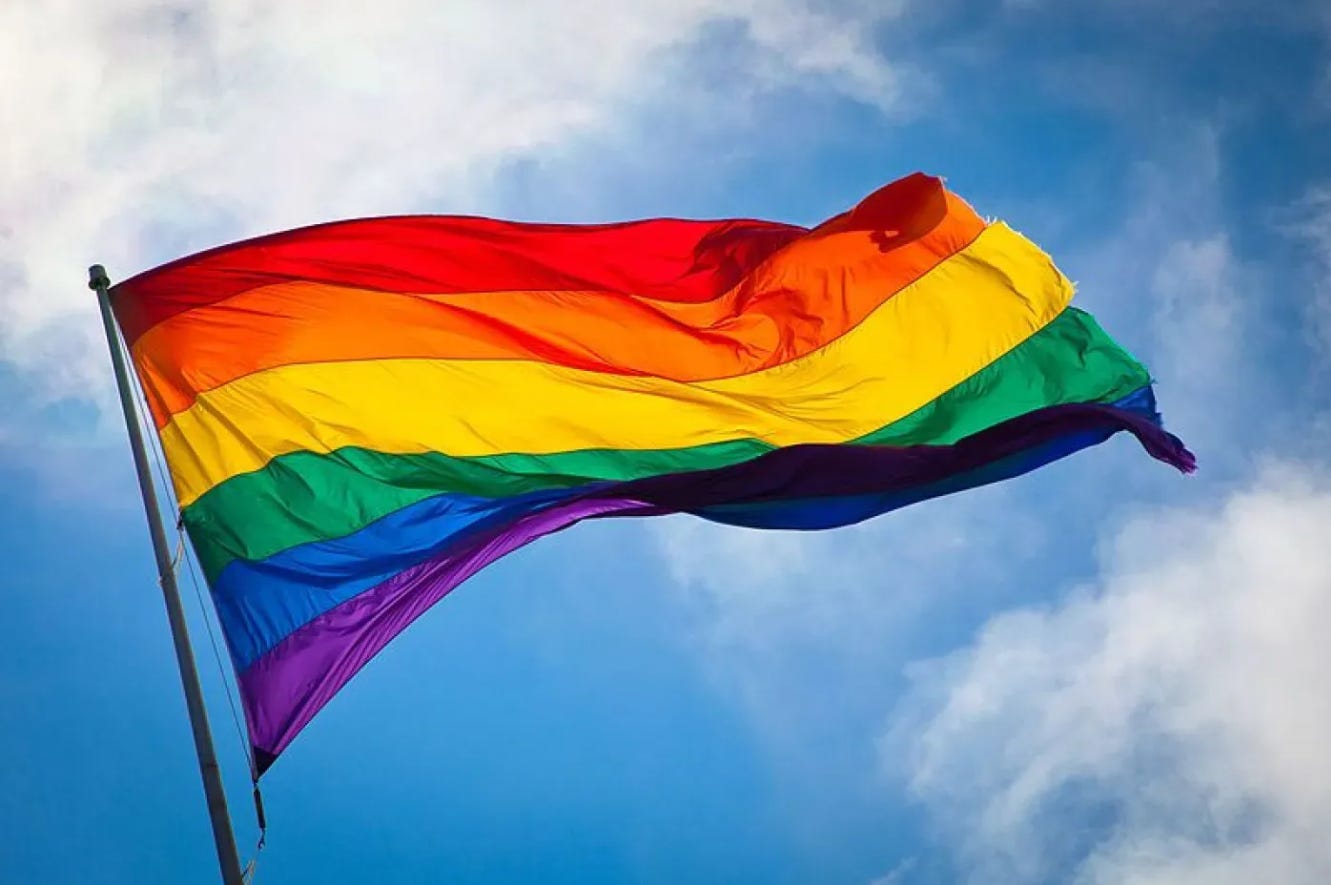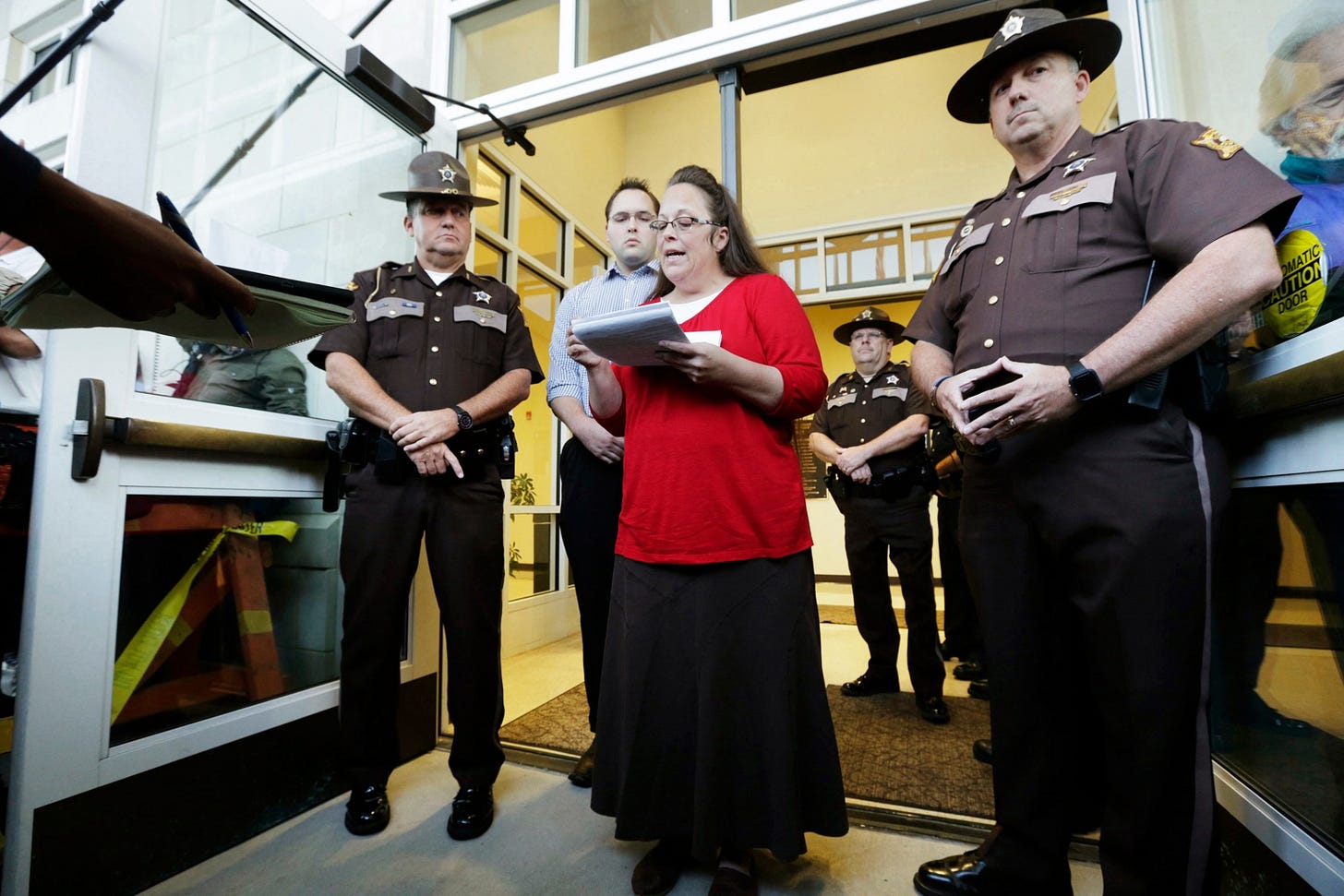The Fragile Promise of Marriage Equality
Ten years after same-sex marriage became legal, a new wave of fear spreads through communities once told they were finally able to settle down with their loved ones across the nation.
Obergefell vs Hodges, the landmark Supreme Court case that legalized same-sex marriage nationwide, was re-examined Friday behind closed doors by the US Supreme Court. (Photo credit: Creative Commons)
WASHINGTON, D.C. — Justices of the Supreme Court of the United States meet in their first closed door conference since 17th October, to read and discuss cases and petitions and examine arguments. On Friday, while nervous families around the nation held their breath, a petition for the court to re-evaluate Obergefell vs Hodges was included in the agenda.
Kim Davis — the infamous former Kentucky clerk who served a six-day sentence in 2015 after refusing to issues a gay couple their marriage license — filed her Petition for Writ of Certiorari in July. She formally argued for the right of religious refusal to issue same-sex marriage licenses, while also calling into question the integrity of the Supreme Court’s June 26, 2015 decision in Obergefell vs Hodges.
“The mistake must be corrected,” wrote Mathew Staver, Kim Davis’ attorney. He went on to call Supreme Court justice Anthony Kennedy’s majority opinion “legal fiction.”
Kim Davis stands with her son Nathan, a deputy clerk, while reading a statement related to her Supreme Court challenge outside the Rowan County Courthouse in Morehead, KY, September 14th, 2015. (Photo credit: Pablo Alcala/Lexington Herald-Leader/Tribune News Service via Getty Image)
While lower courts have already dismissed her claims, Davis had vowed to take the fight to the highest court in the land. And on Friday, her petition was evaluated by SCOTUS while same-sex couples around the United States held their breath.
LGBTQ families and local advocacy groups have expressed frustration and fear with the legal process for even allowing this case to be heard.
“This process is not out of the ordinary,” says Dwayne Steward, executive director of nonprofit organization Equality Ohio, “but this moment is very disappointing, and it’s causing a lot of very dangerous rhetoric, even though the case has a slim chance of moving forward.”
A gay couple celebrating their nuptials. (Photo credit: Francesco Salvaggio via iStock.)
A Community Waits With Bated Breath
Many LGBTQ Ohioans still recall the state’s 2004 ban on same-sex marriage, passed by 61.7% of voters at the time. The Obergefell decision by SCOTUS in June 2015 overruled the ban via the Supremacy Clause — the constitutional clause that establishes US Federal law as the “supreme law of the land. Since that time, LGBT Ohioans have enjoyed the equal right to marry, and as a result, public opinion has swayed.
David DeWitt, Ohio Capital Journal
A 2012 poll by the Washington Post showed 52% of Ohio residents saying that same-sex marriage should be legal. A 2016 Public Religion Research Institute poll showed a 56% majority in favor of same-sex marriage in Ohio. A 2022 survey by the same institute showed 70% of Ohio respondents supported same-sex marriage.
Polling has tracked the shift statistically, but same-sex couples have felt the relief in real-time. In addition to greater social acceptance, married LGBTQ couples gained access to the rights of heterosexual married couples, and many are fearful that – under the current climate of retrenchment – the right to marry may be advanced to the chopping block. The advancement of Davis’ petition taps into huge cultural, political, and identity issues.
The idea that same-sex marriage could potentially be repealed, even after having been settled for a decade, elevates this case to a flashpoint.
I do.
But the motherfuckers say we can’t,
‘cause you’re a girl and I’m a girl
(or at least something close)
So the most we can hope for is an uncivil union in Vermont
But I want church bells
I want rosary beads;
I want Jesus on his knees.
I want to walk down the aisle while all the patriarchy smiles -
Well, I guess that’s not true.
But I do want to spend my life with you.
And I want to know that fifty years from now
When you’re in a hospital room and getting ready to die,
When visiting hours are for family members only,
I want to know they’ll let me in to say goodbye.
‘Cause I’ve been fifty years
Memorizing how the lines beneath your eyes form rivers when you cry
And I’ve held my hand like an ocean at your cheek saying,
“Baby, flow to me.”
‘Cause fifty years I’ve watched you grow with me –
Fifty years of you never letting go of me,
Through nightmares and dreams and everything in between.
Excerpt from: ”I Do.” by Andrea Gibson. 2009.
What’s At Stake?
Marriage can be a beautiful experience for a couple. The joy around that special day — taken with the bitter pill of anxiety and jitters that may arise before — is more than a symbolic gesture of wedding rings and nuptial photos.
Couples who have certified their marriage have recognized rights in the eyes of the American legal system. Married couples have the ability to file joint tax returns, make medical decisions in the case one of the pair become incapacitated, inherit spousal property, and access spousal benefits for health insurance, social security, auto and home insurance, and VA benefit sharing.
In the event of wrongful death, the surviving spouse may sue for the deceased’s loss of consortium. Hospitals often restrict visiting to “family only” in the event of severe crises, meaning that your spouse would have access. Property rights are also affected by marriage, with many states recognizing assets acquired during marriage as community property.
In a 2024 Ohio Supreme Court victory, same-sex couples were awarded extended parentage rights, meaning that those who would’ve been married at the time of their child’s conception but for Ohio’s unconstitutional ban on same-sex marriage were finally legally allowed to benefit from parentage.
The National Association of Social Workers (NASW) published an entry on its blog, declaring:
NASW supports protecting the familial attachments between LGBTQ couples and their children and recognizes that these familial relationships are of the same strength, depth, and importance to the healthy development of children as the relationships of opposite-sex couples and their children. This decision affirms that non-biological parents in same-sex relationships are worthy of parental rights, and it benefits children whose emotional wellbeing is best served by maintaining the child-parent relationship.
Should Kim Davis have her way and overturn same-sex marriage, the loss of rights for a community already reeling from massive federal retrenchment — outlined in detail in our deep look at The Historical Significance of the Lakewood Gender Freedom Policy — would be absolutely devastating.
Same-sex couples who have spent decades together would lose significant benefits awarded by the status of marriage, including the ability to legally enjoy parentage over their children or make decisions for one another under terminal care.
Such important protections have been settled for the past decade, as American LGBTQ couples have been able to wed throughout the country. Same-sex couples fix their eyes firmly on the Supreme Court for now.




